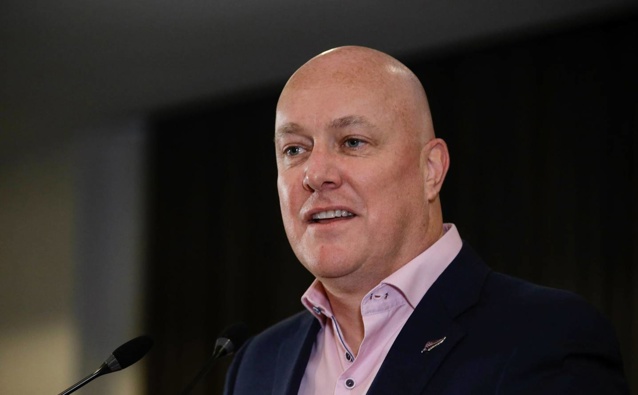National Party leader Christopher Luxon says we have a cost-of-living crisis on our hands
I’ll bet 95 percent of us didn’t need his State of the Nation speech yesterday to tell us that. Of course, we do!
When you’re standing at the supermarket humming and harring over whether you should buy mince or not – because it’s close to $10 a tray – you know you’ve got a cost-of-living crisis.
The same when you’re looking at paying $7 for a cauliflower. Or somewhere around $3 a litre for petrol. Cost-of-living crisis.
And, if we can, we just have to suck it up, don’t we? Well, Christopher Luxon thinks the answer is to have us all pay less tax.
He says inflation is at a 30-year high as costs for necessities such as food, petrol and housing all increase. He says “the average Kiwi family” – whatever that is – is worse off than they were 12 months ago.
He thinks the current Labour government needs to do something about it, by reducing taxes. And if it doesn’t, National will – if it becomes the government at next year’s election.
Now, I don’t think tax cuts are the answer. Simply for the reason that I think the consequences far outweigh the benefits.
Here’s what I mean. If you earn say $70,000 a year, you’d pay about $1,000 less tax a year if Christopher Luxon got his way. So, you’d have about $20 more in your pocket each week.
What’s that? A block of cheese and a cauliflower? It’s peanuts, really. And when you compare that to the government’s reduced tax take, its reduced revenue, I don’t think it’s worth it.
At a time when so many of us are banging on about the failure to invest properly in our health system – particularly hospitals and the people needed to run them – why would you want to reduce the amount of money the Government has available to it?
You wouldn’t. And if you did, would an extra block of cheese and a cauliflower really make the trade worthwhile? No way.
And that’s why I think National’s talk about tax cuts is not only predictable, but also way too simplistic.
Of course, Finance Minister Grant Robertson has been quick to poo-poo the idea. He says Luxon is still in the same "fiscal Bermuda Triangle” that National has been in for a while.
But he’s also going on about higher-wage jobs being the answer. Well, of course, that would be an answer – but I’ve always found that talk about a high-wage economy from politicians a bit pie-in-the-sky, because 97 percent of all businesses in New Zealand are small-to-medium size.
So, politicians have next to zero influence over what those small outfits can afford to pay their staff.
And that’s why tax cuts are probably seen as the next best thing, when it comes to putting more money in peoples’ pockets.
I heard a couple of finance people talking about this. One was a tax expert. The other was an economist. And, to be honest with you, my eyes glazed over a bit.
Because, just like Christopher Luxon’s speech yesterday, when these experts talk about the cost of living – it always feels about 10-times removed from what it’s really all about.
Even when you hear the inflation rate is 5.9 percent – a 30 year high. It’s just another number, isn’t it.
Where it really hits home, is when you’re pushing the trolley around the supermarket wondering why everything seems so expensive. Asking yourself why mince is $10 a pop when it was always the go-to cheap option. When the letter from the power company comes in the mail saying the prices are going up. And when your local councillors sit around the table hiking up your rates bill.
That’s the reality behind the numbers, the experts and the politicians.
A cost-of-living crisis means asking yourself ‘am I going forward, treading water or going backwards?’
And realising that, while you’d like to think you’re at least treading water – you’re probably actually going backwards.
Take your Radio, Podcasts and Music with you










